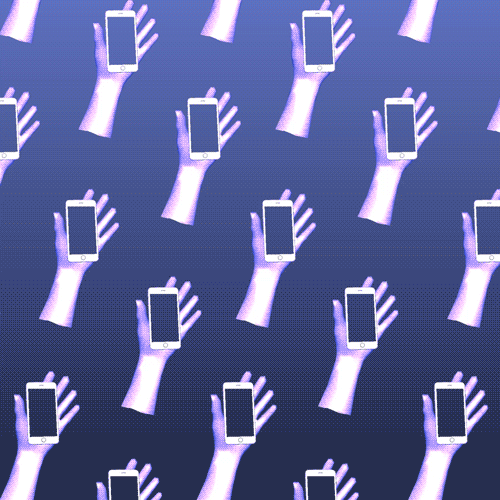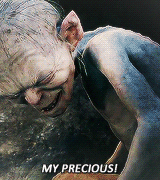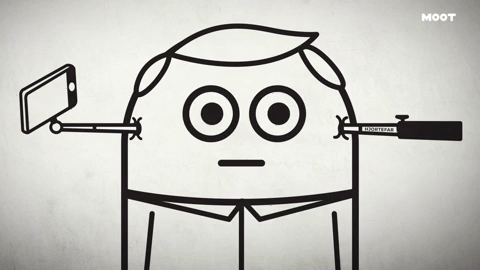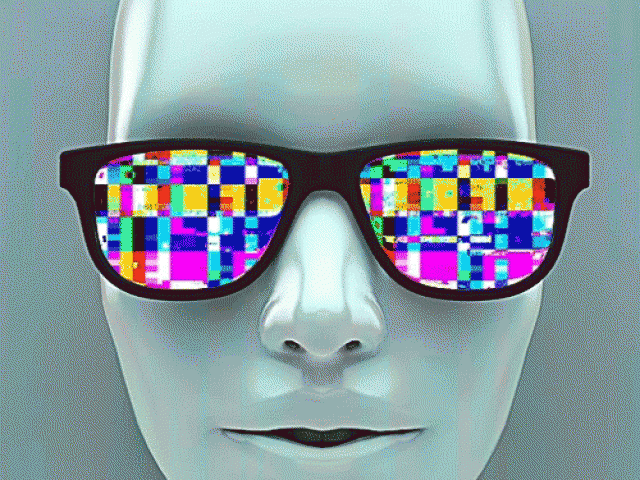The screens have invaded our lives – it’s time we made a stand

BOOK NEWS: We’ve developed an even closer symbiosis with our smartphones over the last 10 years. It’s a dream for tech giants. But does it have to be our dream too?
ResearcherZone | 15. Jan 2019
By Bent Meier Sørensen, Professor, Department of Management, Politics and Philosophy, CBS
It was raining thousands of iPads recently in the elementary school classrooms of Høje-Taastrup Municipality. The politicians responsible for this have most likely never tried to take a screen away from a five year old before.
I have, along with all the other parents in Høje-Taastrup. If you want to know what a screen does to a person, just take an iPad away from a five-year-old boy. If you can.
His iron grip on the screen requires full strength, as well as the ability to deal with the hair-raising outbursts of foaming white rage, directed at the sheer evil that you unwittingly have come to represent.
If you get that far, there is a high probability that the five-year-old is your own child. But it is also just as likely that, in that moment, you cannot recognize him.
He is changed. It’s as if something else speaks through him. He is obsessed with the screen, and this is the experience that I – and most likely a large number of other parents from Høje-Taastrup – would like to share with the municipality’s politicians, as well as everyone else for whom screens have become a daily challenge.
My five-year-old son’s desire reminds me of Gollum’s
In other words, it was this everyday experience that led me to do the particular research, that became the basis for the book, ‘Skærmens magi: At træne modstandskraften i en digital tid’ (The Magic of the Screen: Mastering the Art of Resistance in a Digital Age) – my countless repeated attempts to take the screen away from my five-year-old son.
In these situations, he reminds me of Gollum from ‘Lord of the Rings’, a creature so obsessed with the desire to possess the ring that any attempt to take it from him becomes a dangerous business.

The ring has the ability to make the one wearing it invisible, and in this regard its effect resembles that of the screen. A person staring into a screen, especially a smartphone screen, also becomes invisible. If you happen to walk into these people on the bus or in the street, they look up with astonished eyes as if to say: Are there other people here?
Screens turned off provide better learning
The digital respite and the astonishment when that pause is interrupted really struck me when I was teaching. My co-teacher at CBS, Associate Professor Christian Garmann Johnsen and I asked two specific questions in regards to the use of technology in teaching:
What effect would a digital respite have on the opportunities for teaching and on engaging in dialogue with students, and what would be the impact if we radically cut down on the amount of technology used in the auditorium?
Today we know that the interruptions that irrelevant screen usage produce during teaching result in inferior learning, reduced ability to concentrate, less dialogue with the teachers and other students, and generally decreased ‘intensity’ in the auditorium. In addition, there is insufficient development of empathy, the incapacity to be alone and reduced ability to talk to others.
On the other hand, the effect of turning off screens – smartphones, iPads and computers – during teaching, is more dialogue, better focus and increased intensity in the classroom. We have received some comments, but most of them are positive: One wrote to us that it was the first time in her five years at CBS where she felt uninterrupted, and therefore felt as though she’d finally ‘arrived’ at the university.
The celebration in Høje-Taastrup was shared in Silicon Valley
Back in Høje-Taastrup, things had gone in the complete opposite direction, and all the schools had in the blink of an eye been filled with screens. According to the municipality’s website, there were “cheers in the classroom” when the mayor handed out the screens. I bet there was. I bet there was just as much joy too at Apple’s headquarters in Silicon Valley when they opened up the cash register.

The initiative in Høje-Taastrup was supposed to offer more “opportunities for exciting teaching”. This is when my belief started to falter because, with the iPads, the teachers not only get a teaching aid, but also a huge educational challenge too. By incorporating modern technology into teaching, they risk having to fight for attention with the light from the screen at all times.
I have lost that competition many times myself. Learning something is sometimes fun, but more often it’s boring and it is always demanding. On the other hand, platform companies make a lot of money from pupils and students who spend time looking at the screen, just as Apple and other tablet manufacturers do.
We want the screen, because it is the screen itself that controls our desire
It’s not difficult to come up with reasons why we pick up the screen, especially when there is actually no obvious reason to do so.
In a world that we increasingly, thanks to the same new technologies and apparently indispensable networks, perceive to be demanding, often inhumane and beyond our influence, the screen has become a welcome opportunity to interrupt difficult and perhaps inconvenient situations such as stress, indecision, restlessness or boredom to obtain some sort of temporary clarity.
We feel as though we are in control when we are looking at the screen. That’s most probably an optimistic view. We are offered a world of experiences, we establish relationships with countless other people, and we might relive a memory from our playful childhood, a timeless and placeless symbiosis with the entire world.
At times, we may feel reunited with a lost paradise, a connection to everything, at one with the cosmos. Of course, the tech industry gives us all this step-by-step and piecemeal in a highly coordinated and profitable fashion.
The magic we experience in the light of the screen is directly related to a strong utopia that thrives in California’s technology center in Silicon Valley among the world’s leading tech entrepreneurs. With the help of knowledge, new technology, artificial intelligence and extreme psychological and genetic antidotes against aging and death, including freezing dead people’s brains and drugs that expand human consciousness, humankind can finally be free of the limitations of this life.
It applies to everything from the experience of the suffocating, hierarchical structures at work to the overwhelming feeling of being here on borrowed time. But ultimately it’s about humankind’s age-old dream: immortality.
Singularity is God, and the smartphone is your easy access to Him
A central part of this strong Silicon Valley utopia is that, in a few decades, computers will make a decisive breakthrough in the power of artificial intelligence. We humans will be able to connect with this super-intelligence, become one with it and thereby realize ourselves completely. We can be like God.
This event is known as ‘the singularity’, and I call it a religion (see an example of a singularity advocate here). It sounds a bit crazy, but a screen on a mobile phone is a world away from the black and white TV screen that a lot of us looked at in the 1970s. Things have changed, and the spread of smartphones over the last 10 years has altered our relationship with screens in two ways.
First of all, the screen is connected to the internet and social media, and has therefore opened our lives up to a wide range of professional and social activities that we can engage in, regardless of time and place.

Through this behavior, we have entrusted an immense amount of information about our lives, desires and behavioral patterns to a number of tech giants who have so far not given us any good reasons why we should have blind faith in them.
Secondly, smartphone screens have become so integrated into our lives (and are almost an extension of our bodies), that they’ve become extremely accessible. And the challenge we face now is how we can avoid this availability.
Just as boys and men for centuries, out of distraction or enthusiasm, have instinctively grabbed their genitals, today all of us – men, women and children – instinctively grab our smartphones, casting doubt over whether it is something we ‘choose’ to do. We just do it.
We need digital resistance training
The screen’s invasion into the lives of children, adolescents and adults calls for training the capacity for resistance. The training provided by screens is mostly poor training. It’s not based on skills honed over a long time, but a sudden whim of inspiration, a God-given talent and mastery that can be achieved over the space of an afternoon.
It takes years to learn how to play the drums, decades to get any good, and a lifetime to become a master. It takes 15 seconds to learn how to play Candy Crush. However, there’s an imminent risk that you’ll keep playing Candy Crush until you pass out.
Although my book is primarily an analysis of how tech giants have come close to gaining a monopoly in the market and in our lives, the book also points to a large number of ways we can defend ourselves.

Defy interruptions and explore what boredom can do for you
Start by calling your friends and family instead of sending them well-considered, timed and edited text messages. This will train you in the difficult art of conversation and will also take your eyes off the screen.
In other words, you must hold the phone up to your ear to prevent the tech giants from invading your brain via the headphones. This will also reduce the number of cyclists killed on the road.
Reads books, made of paper. If you can just about manage to read one book in 2019 (which would be an excellent goal!), it should not be ‘Skærmens magi’. It should be ’The Fall of the King’ by Johannes V. Jensen. I refer to it in my book and it is a masterful novel about your life as a human being crippled by interruptions.
Boycott Amazon. Ditch Snapchat. Check nothing. Hide your valuable life.
Train yourself to be alone without interruptions from your smartphone (‘on silent’ doesn’t count). Listen to what boredom can do for you. Boredom comes just before anxiety. But we often don’t get to that point because some so-called ‘tech entrepreneurs’ from a dirty carport in California will sell you something that will stop anxiety getting to you.
Say no to their interruptions. Your anxiety will eventually make your life greater because it will ask you some questions that you cannot answer in 15 seconds. It will take you a lifetime to find the answer to that anxiety. Your lifetime.



































































































































Comments